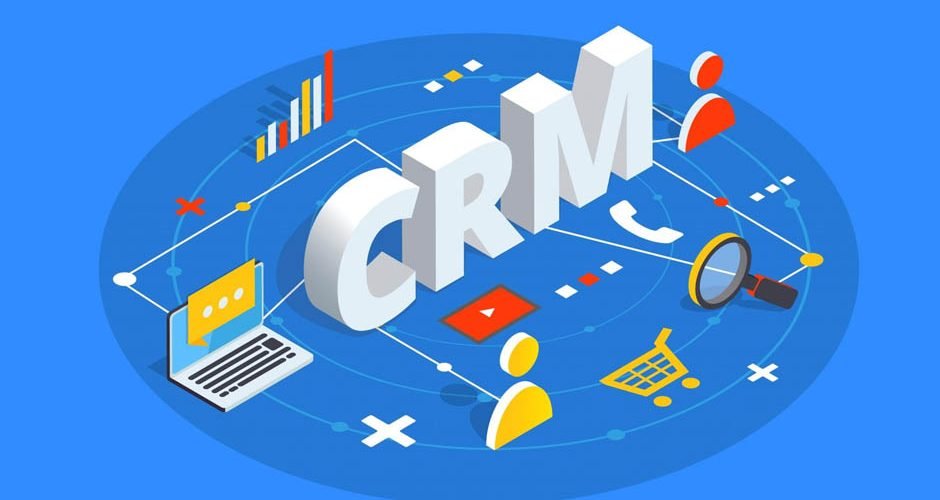In today’s competitive business landscape, customer relationship management (CRM) has become an essential component of success. A good CRM software serves as the backbone of effective customer management, enabling businesses to nurture relationships, improve customer satisfaction, and drive growth. It is a powerful tool that empowers organizations to understand their customers better, anticipate their needs, and deliver personalized experiences.
With the rise of digital technologies and increasing customer expectations, businesses need to adapt and evolve their customer management strategies. This is where a robust CRM system comes into play. It provides businesses with a centralized platform to store and manage customer data, track interactions, and streamline processes across sales, marketing, and customer support teams.
By leveraging a good CRM system, businesses can gain valuable insights into customer behavior, preferences, and buying patterns. This knowledge enables them to tailor their offerings, deliver targeted marketing campaigns, and provide exceptional customer service through integrated business IT solutions. Ultimately, a well-implemented CRM system can make a significant difference in a business’s ability to build lasting customer relationships and achieve long-term success.
Table of Contents
What is a CRM?
A customer relationship management (CRM) system is a software solution designed to manage and organize customer interactions and data throughout the customer lifecycle. It serves as a centralized hub that captures, stores, and analyzes customer information, including contact details, purchase history, communication history, and preferences.
A good CRM system offers a range of features and functionalities that empower businesses to effectively manage their customer relationships. These features may include contact management, lead and opportunity tracking, sales forecasting, email automation, customer segmentation, and performance analytics.
The primary purpose of a CRM system is to help businesses build stronger customer relationships by facilitating better communication, providing personalized experiences, and improving overall customer satisfaction. By centralizing customer data, a CRM system enables businesses to gain a holistic view of their customers and make data-driven decisions. It streamlines sales processes, enhances marketing efforts, and enables efficient customer support.
In essence, a CRM system acts as a strategic tool that enables businesses to optimize their customer interactions, drive growth, and stay ahead in today’s customer-centric marketplace.
Benefits of a Good CRM
Implementing a robust CRM system brings numerous benefits to businesses, regardless of their size or industry. Here are some key advantages that a good CRM system offers:
Enhanced customer satisfaction: By leveraging a CRM system, businesses can gain a comprehensive understanding of their customers’ needs, preferences, and purchase history. This knowledge allows them to personalize interactions, deliver timely support, and provide a seamless customer experience. As a result, customer satisfaction levels soar, leading to increased loyalty and positive word-of-mouth.
Before mentioning other benefits, It’s worth noting that there are even free CRM options for small businesses looking to benefit from a CRM system without incurring additional costs. These free CRM solutions provide basic functionalities and can be an excellent starting point for small businesses to manage their customer relationships effectively.
Streamlined sales process: A good CRM system acts as a powerful sales tool, enabling businesses to streamline their sales processes and boost productivity. It automates routine tasks, such as data entry and follow-ups, freeing up valuable time for sales teams to focus on building relationships and closing deals. With accurate sales forecasting and pipeline tracking, businesses can make informed decisions and optimize their sales strategies for better results.
Improved marketing campaigns: With a CRM system, businesses can segment their customer base based on demographics, behaviors, or preferences. This segmentation empowers them to create targeted marketing campaigns tailored to specific customer groups. By tracking campaign effectiveness and analyzing customer responses, businesses can refine their marketing strategies, achieve higher conversion rates, and maximize return on investment (ROI).
Better customer retention and loyalty: A good CRM system enables businesses to proactively engage with their customers, fostering stronger relationships and boosting customer retention rates. By keeping track of customer interactions and preferences, businesses can anticipate their needs, offer personalized recommendations, and resolve issues promptly. The result is increased customer loyalty, repeat purchases, and advocacy for the brand.
It’s worth noting that there are even free CRM options for small businesses looking to benefit from a CRM system without incurring additional costs. These free CRM solutions provide basic functionalities and can be an excellent starting point for small businesses to manage their customer relationships effectively.
Case Studies and Real-Life Examples
Real-life examples of businesses that have successfully implemented CRM systems demonstrate the tangible benefits and outcomes they have achieved. One such example is Company X, a retail business that implemented a CRM system to enhance their customer relationships. By leveraging the CRM’s customer data analysis capabilities, they gained valuable insights into their customers’ preferences and buying patterns. With this information, they personalized their marketing campaigns and improved product recommendations, resulting in a significant increase in customer engagement and sales.
Another case study involves Company Y, a service-based company that adopted a CRM system to streamline their sales process. The CRM system allowed their sales team to track leads, manage opportunities, and automate follow-ups, leading to improved efficiency and faster deal closures. With better visibility into the sales pipeline and accurate sales forecasting, Company Y experienced a notable increase in revenue and customer satisfaction.
These examples highlight the transformative impact of CRM systems on businesses’ success. By harnessing the power of a CRM system, companies can achieve measurable results such as increased sales, improved customer retention, enhanced marketing effectiveness, and overall business growth. These success stories serve as inspiration for other businesses seeking to leverage CRM systems to drive their own achievements.
Choosing the Right CRM System
Selecting the right CRM system is a critical decision that can impact a business’s long-term success. When choosing a CRM system, several factors need to be considered. Firstly, scalability is crucial to ensure that the CRM can accommodate the business’s future growth and evolving needs. Additionally, customization options are essential as they allow tailoring the CRM to fit specific business processes and requirements.
Integration capabilities are another important consideration. A CRM system should seamlessly integrate with existing software and tools, such as email marketing platforms or customer support systems, to enable efficient data sharing and streamline workflows. Pricing is also a factor, and businesses should evaluate the cost of the CRM system in relation to the value it delivers.
Researching and comparing popular CRM options is essential. By analyzing the features, user reviews, and reputation of CRM vendors, businesses can gain insights into which system aligns best with their specific needs.
Conclusion
In today’s competitive business landscape, a good CRM system is no longer a luxury but a necessity for businesses seeking long-term success. It serves as a powerful tool to enhance customer satisfaction, streamline sales processes, improve marketing campaigns, and foster customer loyalty. By leveraging a CRM system, businesses gain a comprehensive understanding of their customers, enabling personalized interactions and tailored experiences. Investing in the right CRM system and effectively implementing it can provide a significant competitive advantage, allowing businesses to build stronger customer relationships, drive growth, and stay ahead in the ever-evolving marketplace. Embracing the power of a good CRM system is a strategic decision that can propel businesses toward sustainable success and prosperity.





